

E-Books → David Hume and Contemporary Philosophy
Published by: voska89 on 26-08-2022, 09:15 |  0
0
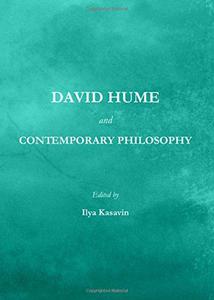
David Hume and Contemporary Philosophy By Ilya Kasavin
2012 | 335 Pages | ISBN: 1443841315 | PDF | 2 MB
David Hume bridges a gap between classical and non-classical philosophy. Two major approaches in the XX century systematic philosophy - naturalism and relativism - have been both basically inspired by Hume and build the strongest controversy of nowadays. The dethroning of the knowing agent and the spiritual substance from their privileged place opens way to the death of God (F. Nietzsche) or the death of the Author (R. Barthes). His criticism of causality corresponds to the indeterminism of the quantum mechanics (B. Russell). K. Popper's falsificationism would be hardly possible without Hume's account of induction. L. Wittgenstein's considerations on rule following reveals similarities with Hume's idea of habit (S. Kripke) as well as with P. Bourdieu's concept of habitus. D. Bloor likes to think of Hume as Edinburgh's great sociologist of knowledge. The present collection is also not a mere contribution to the history of philosophy, though it covers many problems of the contemporary Humean scholarship and contains the articles written by the leading researchers in the field (B. Straud, R. Harre, J. Bricke, E. Radcliffe etc.). Its aim is rather to demonstrate the 'vivacity' of Hume for the contemporary philosophy. Their considerations range from the subtlest questions of the development of his thought and its impact on the contemporaries to the most recent and controversial topics in epistemology, philosophy of science, political theory and ethics
E-Books → John Hume A Biography
Published by: voska89 on 24-08-2022, 03:30 |  0
0
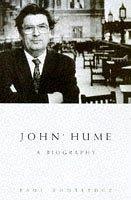
John Hume: A Biography By Paul Routledge
1997 | 320 Pages | ISBN: 0002556707 | PDF | 26 MB
The full account of one man's role in seeking an end to IRA/Loyalist violence. Paul Routledge appraises the progress of the 30-year crusade, and reveals Hume's determination and optimism throughout.
E-Books → The Cambridge Companion to Hume's Treatise
Published by: voska89 on 30-07-2022, 19:17 |  0
0
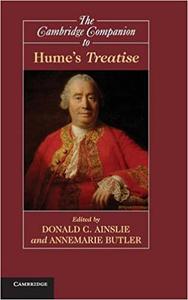
Donald C. Ainslie, Annemarie Butler, "The Cambridge Companion to Hume's Treatise"
English | 2015 | pages: 416 | ISBN: 052152914X, 0521821673 | EPUB | 0,6 mb
Revered for his contributions to empiricism, skepticism, and ethics, David Hume remains one of the most important figures in the history of Western philosophy. His first and broadest work, A Treatise of Human Nature (1739-40), comprises three volumes, concerning the understanding, the passions, and morals. He develops a naturalist and empiricist program, illustrating that the mind operates through the association of impressions and ideas. This companion features essays by leading scholars that evaluate the philosophical content of the arguments in Hume's Treatise while considering their historical context. The authors examine Hume's distinctive views on causation, motivation, free will, moral evaluation, and the origins of justice, which continue to influence present-day philosophical debate. This collection will prove a valuable resource for students and scholars exploring Hume, British empiricism, and modern philosophy.
E-Books → Donald Hume Notorious Bank Robber and Double Murderer
Published by: voska89 on 28-07-2022, 22:52 |  0
0

Donald Hume: Notorious Bank Robber and Double Murderer by Jonathan Oates
English | July 1st, 2021 | ISBN: 1526769662 | 240 pages | True EPUB | 25.37 MB
From the bestselling author of John Christie of Rillington Place. "If you have an interest in post war crime and criminals this is one for you!" -Robert Bartlett, author of Blood Royal
E-Books → Hume and Machiavelli Political Realism and Liberal Thought
Published by: voska89 on 28-06-2022, 13:47 |  0
0
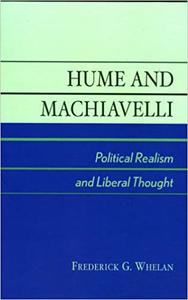
Frederick G. Whelan, "Hume and Machiavelli: Political Realism and Liberal Thought"
English | ISBN: 0739106317 | 2004 | 430 pages | PDF | 37 MB
Hume and Machiavelli compares the political thought of David Hume, usually seen as a classical liberal theorist of the Enlightenment, and Niccolo Machiavelli, the founder of modern political realism. Through an extensive survey of the two authors' approaches to political science, domestic and foreign statecraft, political ethics, and historical interpretation, Frederick G. Whelan demonstrates the presence of numerous Machiavellian themes in Hume, including both borrowings and similar patterns of analysis and judgment. These similarities indicate that Hume's political theory, grounded as it is in the real world of historical experience and moral complexity, may be characterized as a realist variant of liberalism, standing in contrast to better known rationalist and ideal-oriented liberal theories. The book concludes with a general account of realist liberalism, with illustrations from the
E-Books → Reading Hume on the Principles of Morals
Published by: voska89 on 28-06-2022, 00:03 |  0
0
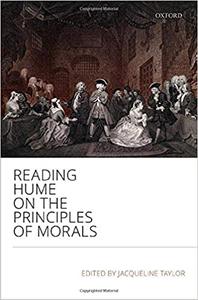
Jacqueline Taylor, "Reading Hume on the Principles of Morals"
English | 2020 | ISBN: 019960374X, 0199603731 | PDF (scan) | pages: 354 | 48.7 mb
Hume's Enquiry concerning the Principles of Morals is one of the landmark works in the history of moral philosophy; this volume presents a section-by-section study of the work in the form of new interpretative essays by leading Hume scholars. The result is a comprehensive reassessment of
E-Books → Hume's Dialogues Concerning Natural Religion [Audiobook]
Published by: voska89 on 22-03-2022, 11:09 |  0
0
![Hume's Dialogues Concerning Natural Religion [Audiobook] Hume's Dialogues Concerning Natural Religion [Audiobook]](https://i116.fastpic.org/big/2022/0322/be/8ea39df9ec4f0bd3f5ba24abdb0dd7be.jpeg)
English |MP3 | M4B | 2020 | ISBN: 9788726425765 | 6h 24m | 527.4 MB
David Hume's Dialogues Concerning Natural Religion had not yet been published when he died in 1776. Even though the manuscript was mostly written during the 1750s, it did not appear until 1779. The subject itself was too delicate and controversial, and Hume's dialectical examination of religious knowledge was especially provocative. What should we teach young people about religion? The characters Demea, Cleanthes, and Philo passionately present and defend three sharply different answers to that question. Demea opens the dialogue with a position derived from René Descartes and Father Malebranche - God's nature is a mystery, but God's existence can be proved logically. Cleanthes attacks that view, both because it leads to mysticism and because it attempts the impossible task of trying to establish existence on the basis of pure reason, without appeal to sense experience. As an alternative, he offers a proof of both God's existence and God's nature based on the same kind of scientific reasoning established by Copernicus, Galileo, and Newton. Taking a skeptical approach, Philo presents a series of arguments that question any attempt to use reason as a basis for religious faith. He suggests that human beings might be better off without religion. The dialogue ends without agreement among the characters, justifying Hume's choice of dialogue as the literary style for this topic.
E-Books → Hume A Very Short Introduction [Audiobook]
Published by: voska89 on 22-03-2022, 11:08 |  0
0
![Hume A Very Short Introduction [Audiobook] Hume A Very Short Introduction [Audiobook]](https://i116.fastpic.org/big/2022/0322/30/2bde1064250bc7304ebad822d5997e30.jpeg)
English | ASIN: B09NCH7S56 | 2021 | 3 hours and 15 minutes |MP3 | M4B | 108 MB
David Hume, philosopher, historian, economist, librarian, and essayist, was one of the great figures of the European Enlightenment. Unlike some of his famous contemporaries, however, he was not dogmatically committed to idealized conceptions of reason, liberty, and progress. Instead, Hume was a skeptic whose arguments questioned the reach and authority of human rationality, and who put the rivalrous passions of commercial life at the center of his theory of human nature. He believed that the modern world was in many ways superior to the ancient world, but was acutely conscious of the threats to peace and progress posed by bigotry, factionalism, and imperialism.
E-Books → Hume and the Demands of Philosophy Science, Skepticism, and Moderation
Published by: voska89 on 11-03-2022, 23:45 |  0
0
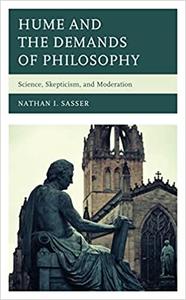
Nathan I. Sasser, "Hume and the Demands of Philosophy: Science, Skepticism, and Moderation"
English | ISBN: 179362321X | 2022 | 228 pages | PDF | 3 MB
Hume and the Demands of Philosophy: Science, Skepticism, and Moderation offers a comprehensive interpretation of the relationship between Hume's scientific project and his skepticism. Nathan I. Sasser argues that Hume is a radical epistemic skeptic who has purely practical reasons for retaining the beliefs that are essential for ordinary life and scientific research. On Sasser's reading, the key to Hume's epistemology is his conception of philosophy as a normative method of inquiry governing the special sciences. Philosophy approves of the mental faculties that produce reasoning and sensory beliefs. But sensory beliefs and the products of reason themselves face insuperable rational defeater arguments, and because they do, philosophy demands that we suspend these beliefs. Hume's solution to this skeptical dilemma is to point out the fatal practical consequences of doing so. He advises us not to submit to the demands of philosophy when doing so is neither agreeable nor useful to ourselves or others. Hume's moderate approach to philosophy recognizes that if the human mind is not created by a beneficent deity, then we must learn to live with the divergence between the epistemic demands of philosophy and the practical demands of life.
E-Books → Delphi Complete Works of David Hume
Published by: voska89 on 10-03-2022, 00:38 |  0
0
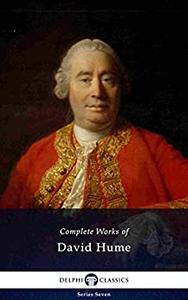
David Hume, "Delphi Complete Works of David Hume"
English | 2016 | ASIN: B01KMN3OXY | 4645 pages | EPUB | 7.7 MB



